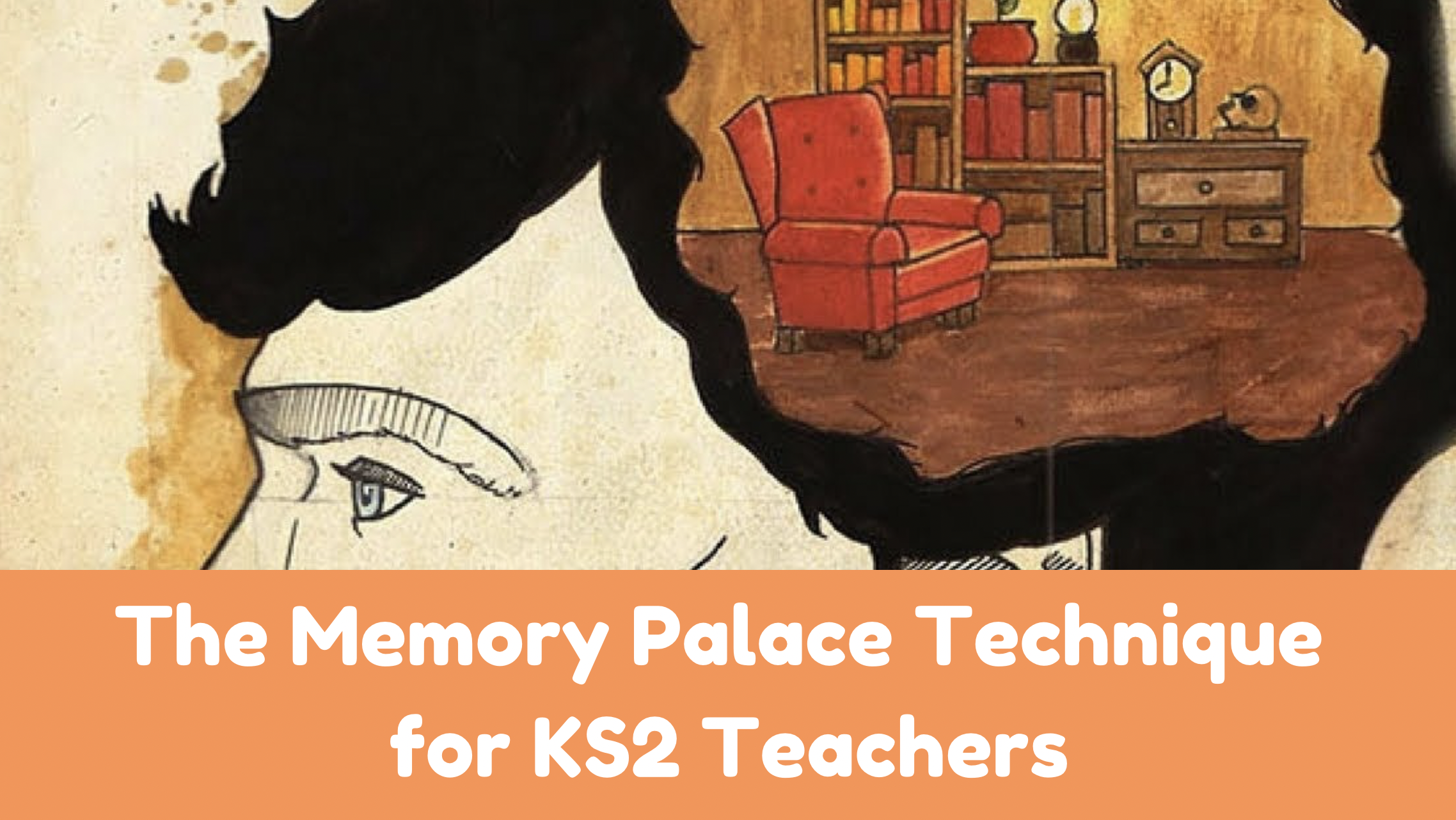

Last Friday, I had the enormous pleasure of visiting Rodmersham Primary School in Kent to see Superhero Spelling in action. The school has been using the programme since October 2023 and has fully embraced its approach and activities.
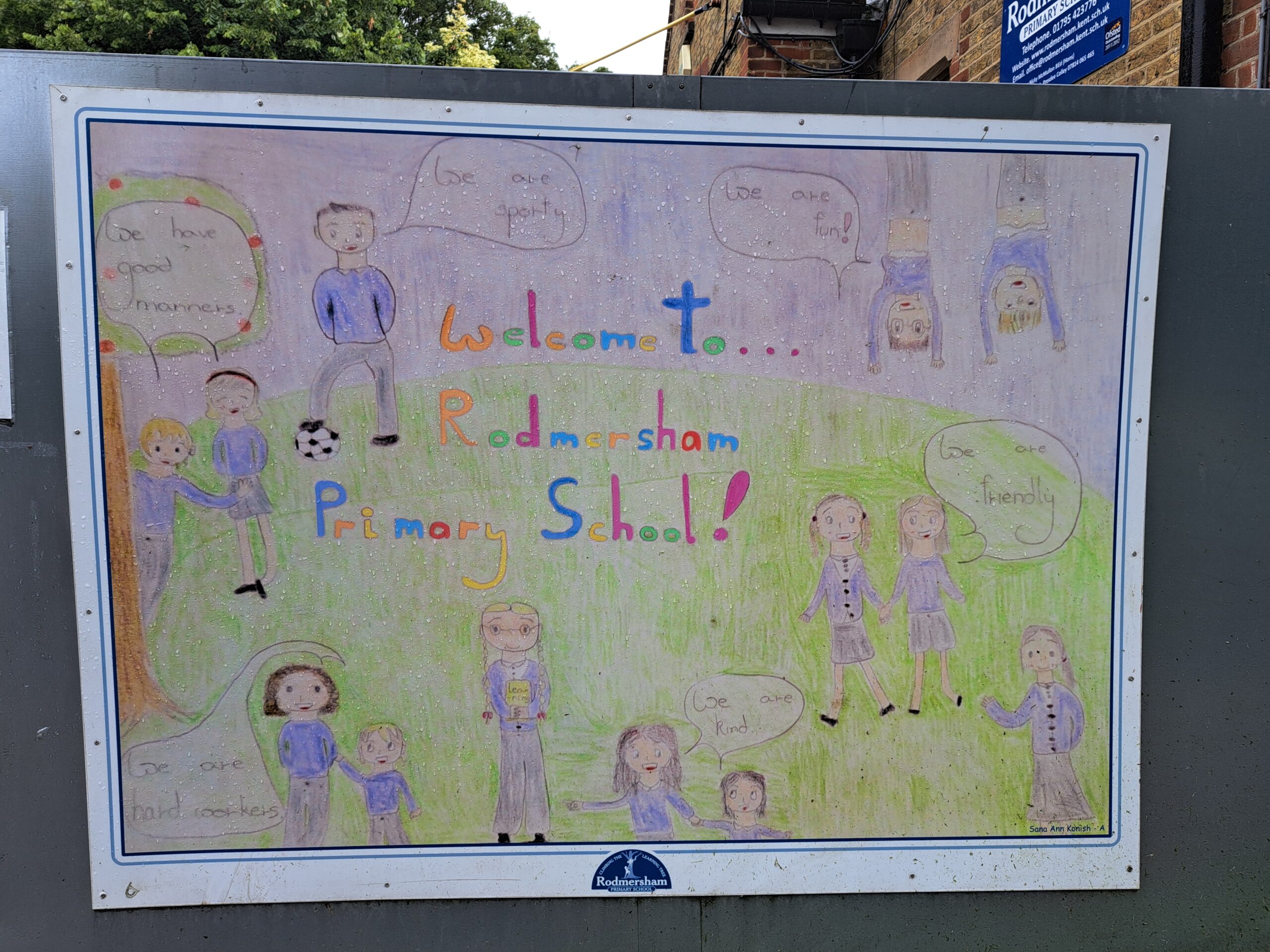
The first thing I noticed upon entering the Year 5 classroom was the children’s engagement and enthusiasm for SHS. They were eager to tell me what they liked about the programme and how it was much more fun than their previous spelling scheme. When I asked, “Who thinks Superhero Spelling is better than our old scheme?” every single child raised their hand. Feedback from the pupils included: “It makes learning spellings fun” and “Since using SHS, I get all my weekly spellings right because I can use the super strategies taught to help me remember them.” The children eagerly shared their favourite activities, ranging from handwriting sheets to catchphrases, which “were fun and the pictures helped me remember”, to memory writing, which “is brilliant for me because it helps me remember the different parts of the words using colour, images, and marks to break the word down”.
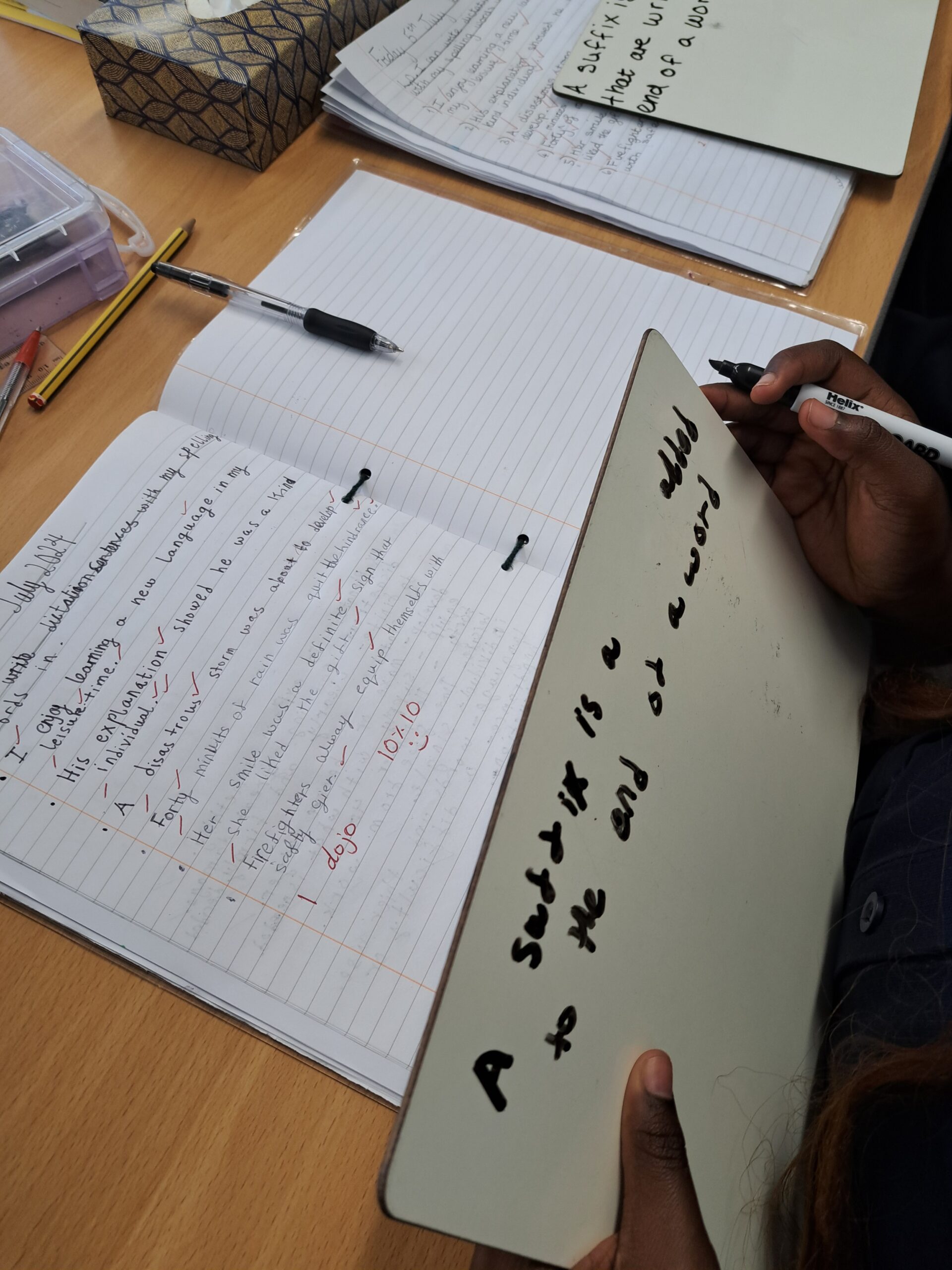
Four children came to the front of the class and confidently and humorously read aloud their spelling raps in a safe and supportive environment. It was wonderful to hear their creativity in a subject that, for me, was always a boring part of the week—a Friday spelling test. Thankfully, those days have passed, and spellings are so much more fun and engaging now. It’s about the doing and applying, not just the test!
Val Phillips, the Year 5 teacher, has seen a definite improvement not only in the children’s marks each week with the dictation sentences but also in their engagement with spellings and their understanding of new words. Val teaches a one-hour spelling lesson each week on a Friday. She begins with the assessment dictations for the week’s spellings using the show PowerPoint. The children then partner mark the spelling words and are given extra dojo rewards for full stops and capital letters in their sentences. They then move on to the Learn PowerPoint for their new learning and spellings for the following week.
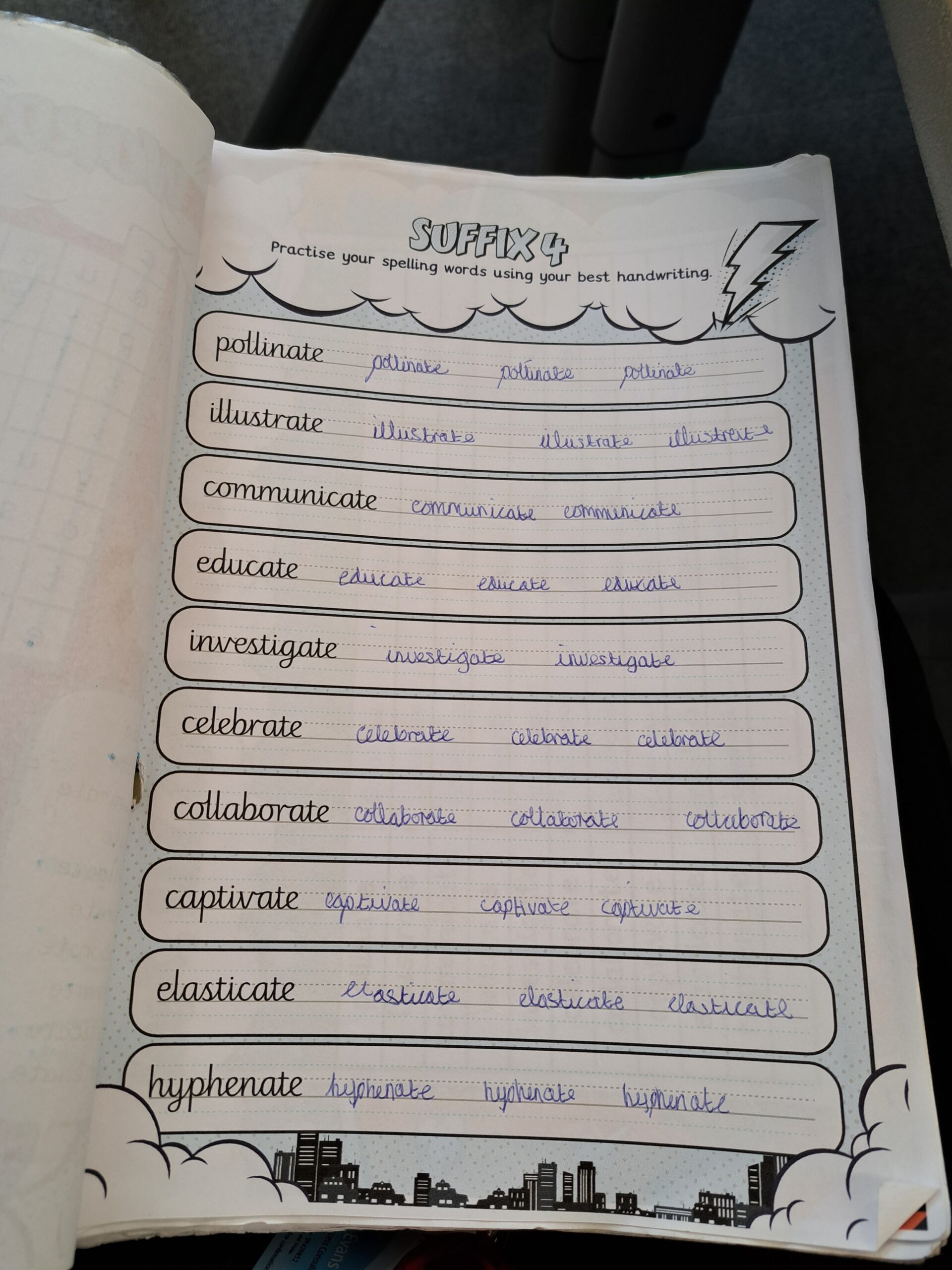
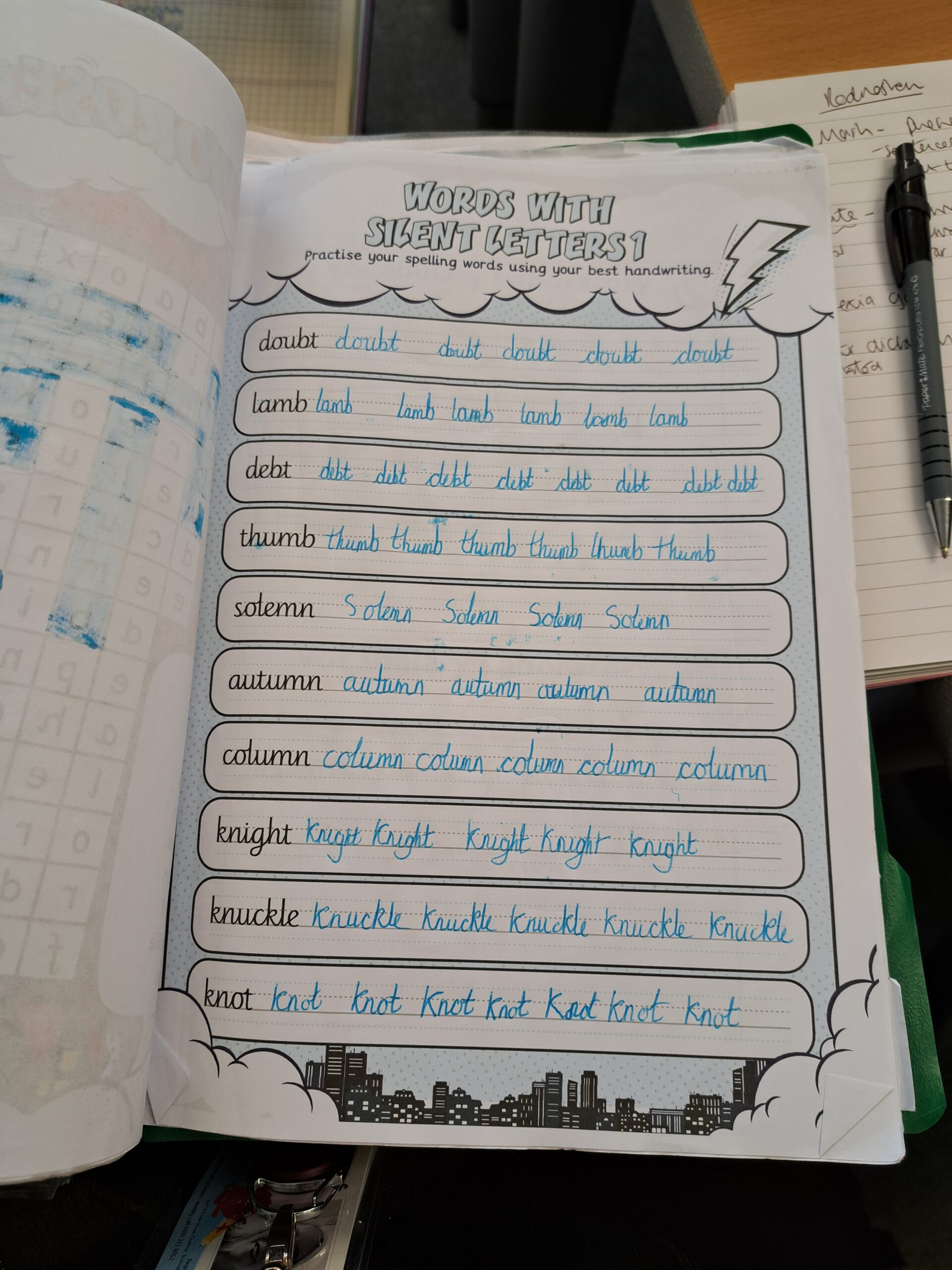
The children love the games and involvement in the new learning, using their whiteboards to answer questions and jot down their ideas such as “What is a suffix?” and “Who can think of 10 words with the ‘-ify’ suffix?” You can see that the children are active learners, all taking part and enjoying the tasks with a competitive element of who can get to 10 words first. The superheroes add a fun element and visuals for those learners who need that extra memory cue, making the learning more personal, with the superhero speaking in the first person with the questions in the PowerPoints.
If there is a new spelling rule or an exception to the rule, the pupils write this in their books to help them remember. Then the class are given their new spellings, which they stick in their books. The dictionaries come out, and the children write their own definitions for the new spellings, taking responsibility for their own learning. Val explains that on the following Monday, the children complete the activity sheet. On Tuesday, they complete the handwriting sheet. On Wednesday, they do the wordsearch so that each day for their early morning work, they are working their way through the supplementary activities, reinforcing and consolidating their learning and the new spellings ready for the Friday dictation assessment sentences. She says this works really well for the children and that having all the resources ready-made saves her a lot of time.
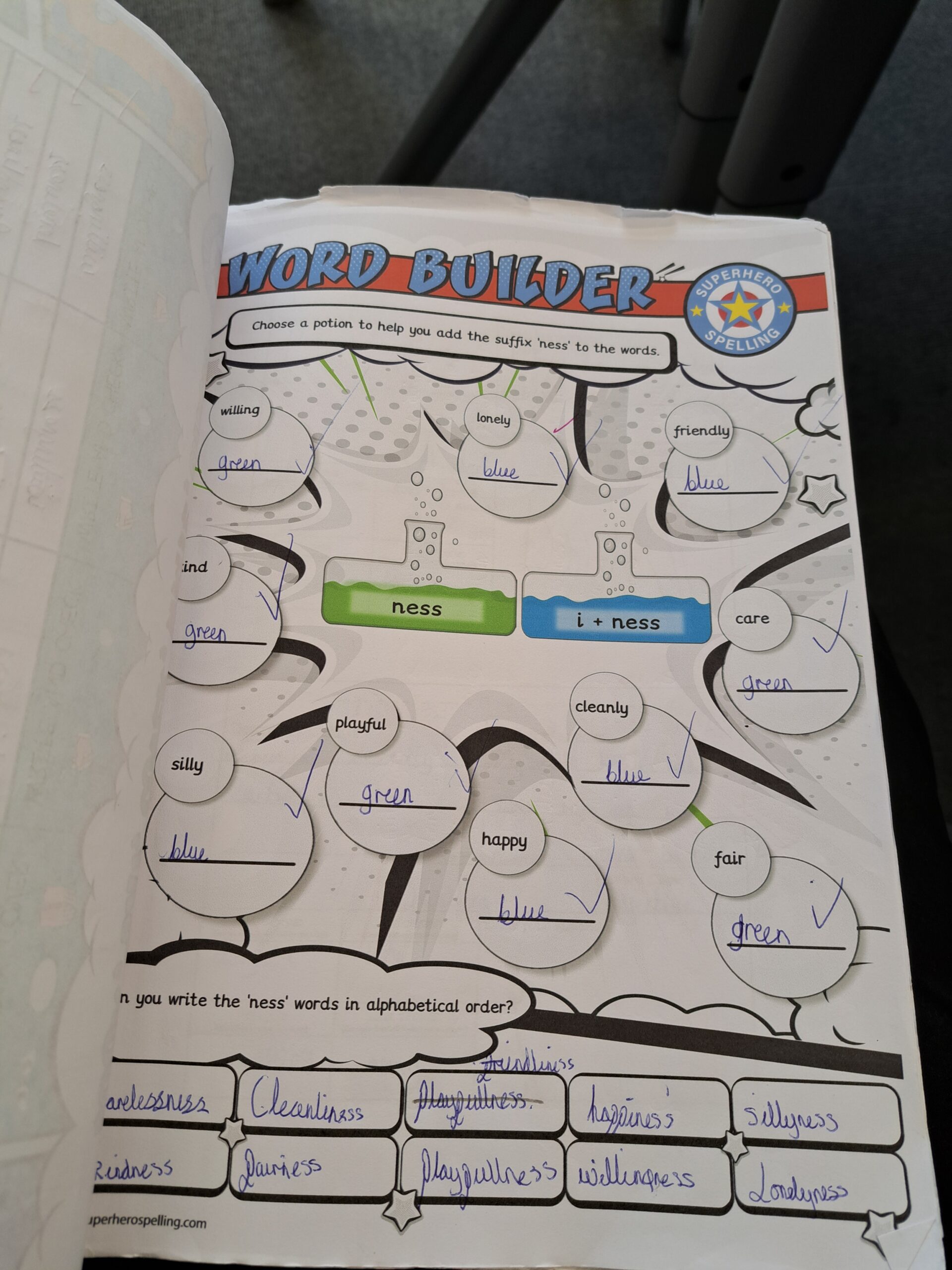
The Superhero Spelling programme is super flexible and can be taught in a variety of ways: a weekly lesson like Rodmersham is doing, or you can break it down into shorter lessons by doing the three different phases of the lesson over three different sessions. We would love to hear how your school is using the resources and what works for you as a teacher.
Thank you, Rodmersham, for such an amazing session and for making spellings come alive in your classroom!
Register
To get access to our FREE samples.